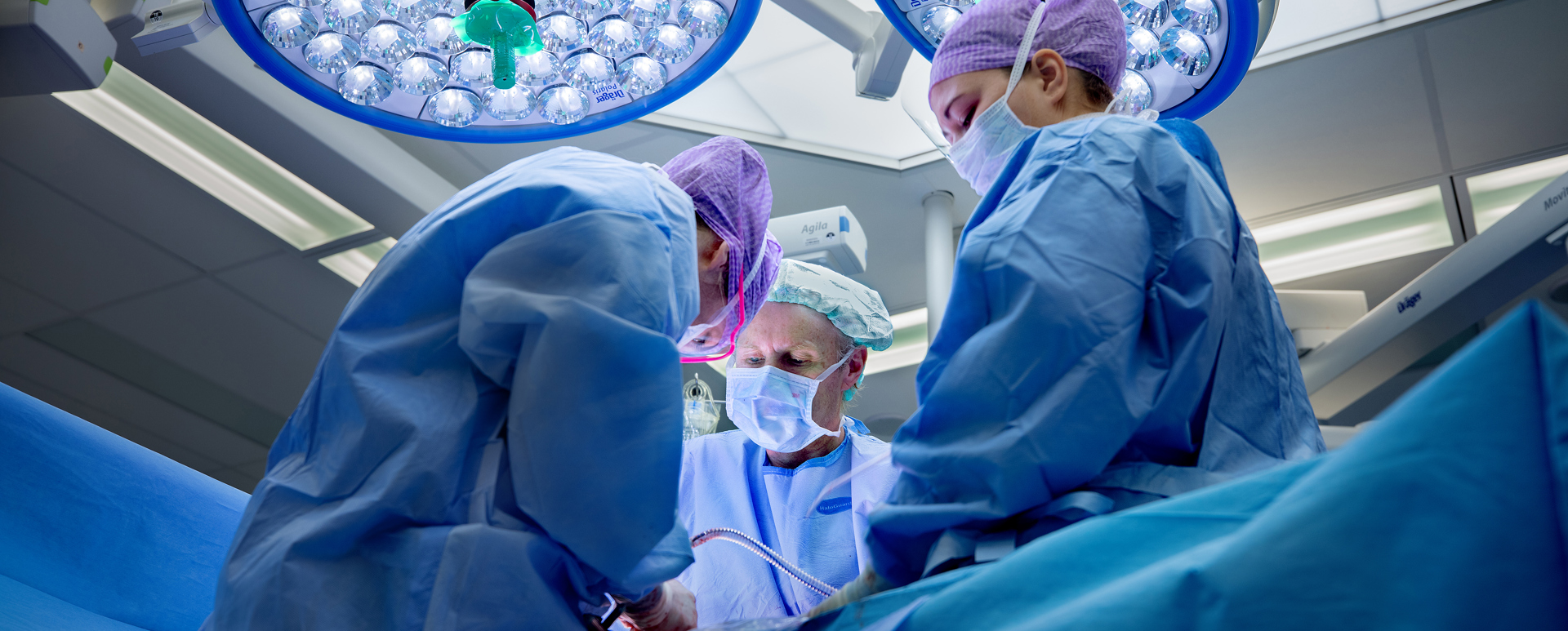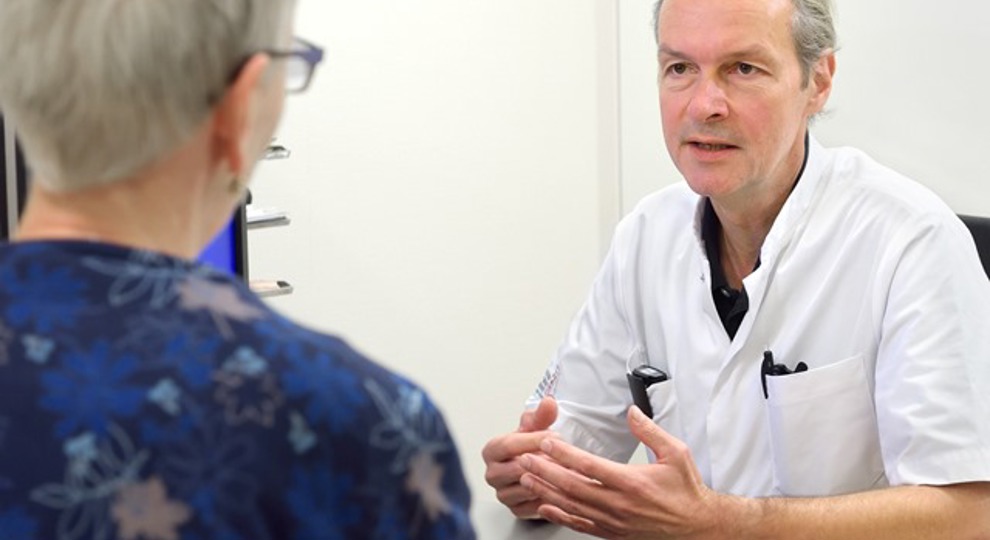Surgery for kidney cancer / (partial) nephrectomy
Surgery for kidney cancer often requires removal of the entire kidney (nephrectomy, although sometimes a part of the kidney can be spared. This is called a partial nephrectomy or kidney sparing treatment.
Partial nephrectomy
if this treatment is an option for you, your urologist will discuss it with you. A partial nephrectomy is mainly performed if the kidney tumor is small (less than 7 cm) and in an appropriate location, preferably on the outside of the kidney.
Unfavorable locations are:
- close to the renal pelvis, causing an increased risk of urine leakage.
- close to the blood vessels that supply the kidney, which may compromise the blood circulation of the kidney.
if the tumor is not in the right location, we will weigh the pros and cons of the treatment. There may be a reason to consider a partial nephrectomy after all (poor kidney function, or in the case of a single kidney). We will discuss this with you.
Nephrectomy
A nephrectomy is the full removal of a kidney.
Surgery
The surgery can be performed in 2 different ways. The type of surgery you will have, depends on a number of factors including your medical history, any additional conditions, and the location of the tumor. Your urologist or clinical nurse specialist will discuss the best treatment option for your specific situation with you. You will be under general anesthesia during all the following types of surgery.
Keyhole surgery (laparoscopic) sometimes assisted by the Da Vinci Robot
The surgery is performed by making a number of smaller incisions in the abdomen, usually five, after which the abdominal cavity is inflated with carbon dioxide. Through a slightly larger incision in the lower abdomen, the kidney (or part of it) is removed. The urologist controls the robot.
Open surgery (laparotomic)
Depending on the size of the tumor, a horizontal cut (incision) is made in the abdomen and/or on the side to remove the affected part of the kidney.
 nl
nl
 Nederlands
Nederlands

